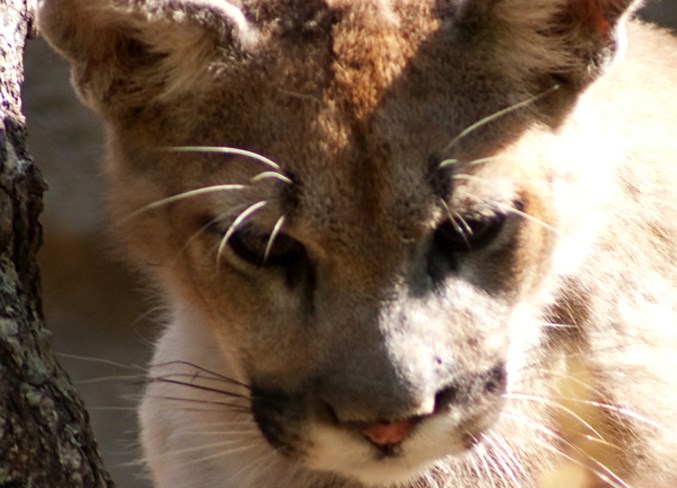BANFF – Almost four weeks after a Calgary man reported being attacked by a cougar in Banff National Park, forensic evidence collected by Parks Canada shows the attack didn’t happen.
Parks Canada completed an investigation into the Feb. 12 report of a cougar attack at the Rockbound Lake area, and officials say no cougar DNA was found on the samples that were collected for testing and no evidence of a cougar – such as tracks – was detected anywhere in the vicinity of the reported attack.
“Following standard protocol, Parks Canada thoroughly searched the area of the reported incident and found no signs of cougar activity,” according to a Parks Canada statement provided to the Rocky Mountain Outlook Thursday afternoon (March 7).
Parks Canada also undertook forensic testing to corroborate initial findings.
“Parks Canada has now received the lab-tested DNA results, indicating that cougar DNA was not found on the samples that were collected,” according to the statement.
“Parks Canada’s investigation is now closed.”
The closure of the Rockbound Lake area, including Castle Mountain Lookout and Silverton Falls, which went into place immediately after the reported attack so Parks Canada's wildlife experts could investigate, was quietly lifted on Feb. 21.
Spencer Weilermann, a 23-year-old who was hiking by himself on the Rockbound Lake trail on Feb. 12, reported he had been attacked by a cougar and gave a series of interviews to various media outlets.
He was taken by EMS to a local hospital.
Photos showed he had scratches on his face, which were reportedly not consistent with a cougar attack.
Local wildlife advocate John Marriott said he was frustrated that Parks Canada management didn’t allow its wildlife experts to comment on this alleged cougar attack immediately.
“In a case like this where it involves a much maligned and misunderstood apex predator that many people are already scared of, it’s inexcusable,” he said.
By not addressing the issue sooner, based on initial findings at the scene, Marriott said this incident has fuelled fear in people across North America as the story went viral.
“The truth is that cougar attacks are extremely rare; you’re more likely to be killed by having a vending machine fall on you than from a cougar attack,” said Marriott, who is co-founder of the Exposed Wildlife Conservancy, an environmental organization focused on protecting apex predators.
There has only been one fatal cougar attack in Alberta. Frances Frost was killed by a cougar in January 2001 as she cross-country skied near Lake Minnewanka in Banff National Park.




